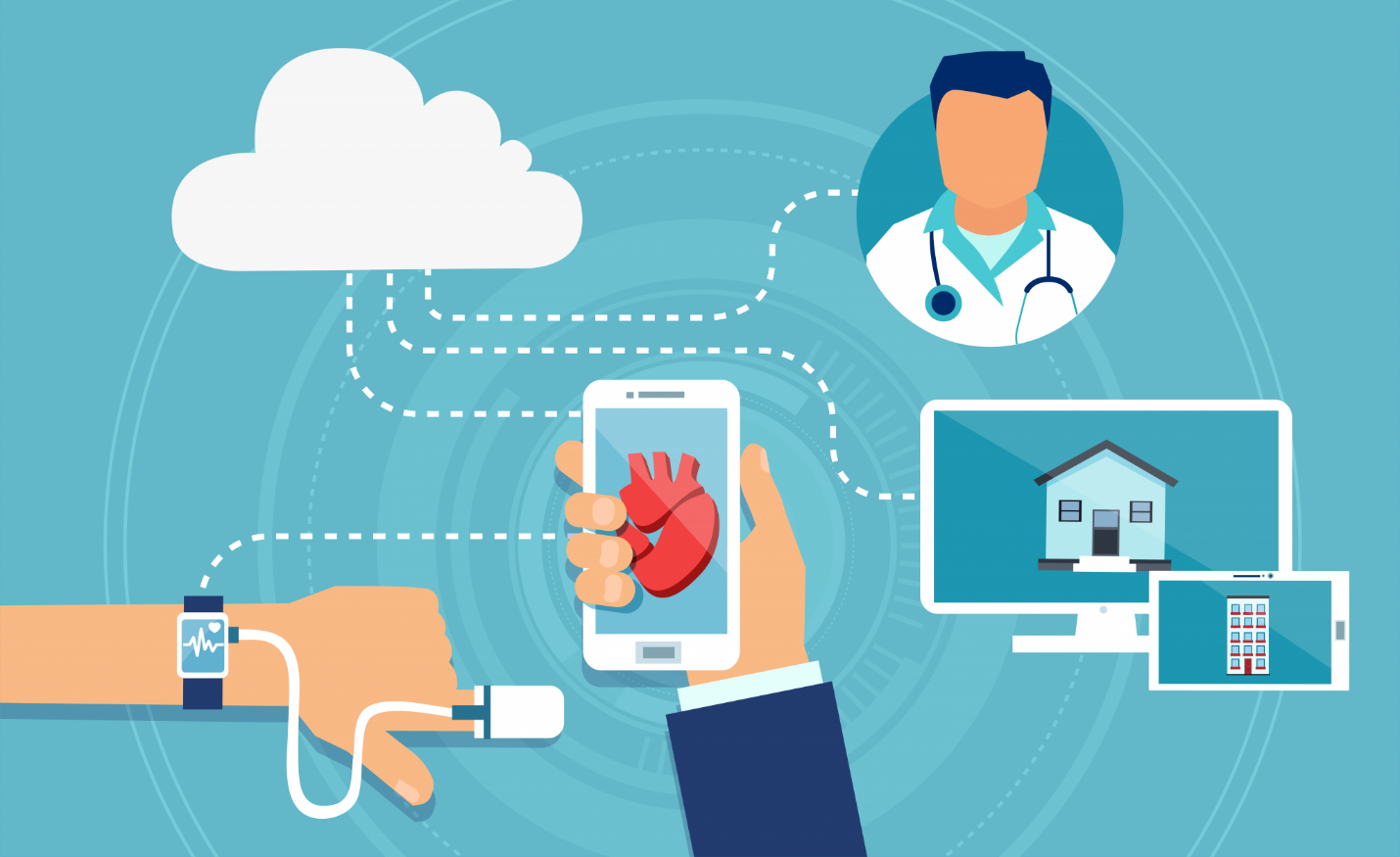The digital health landscape is evolving at an unprecedented pace, driven by technological advancements and shifting patient expectations. As we look toward the future, digital health platforms are poised to revolutionize healthcare delivery, offering innovative solutions to longstanding challenges. This article delves into the transformative potential of digital health platforms, highlighting key trends, opportunities, and
The digital health landscape is evolving at an unprecedented pace, driven by technological advancements and shifting patient expectations. As we look toward the future, digital health platforms are poised to revolutionize healthcare delivery, offering innovative solutions to longstanding challenges. This article delves into the transformative potential of digital health platforms, highlighting key trends, opportunities, and the critical role of emerging technologies in shaping the future of healthcare.
The Rise of Telehealth and Virtual Care
Telehealth has emerged as a cornerstone of digital health platforms, particularly in the wake of the COVID-19 pandemic. The shift towards remote care has underscored the importance of accessible, efficient, and patient-centered healthcare. In the future, telehealth is expected to integrate seamlessly with other digital health solutions, creating a cohesive ecosystem that supports continuous care.
Telehealth Integration: Advanced telehealth platforms will integrate with electronic health records (EHRs), wearable devices, and mobile health applications, enabling real-time data exchange and comprehensive patient monitoring. This integration will enhance the accuracy of diagnoses, personalize treatment plans, and improve patient outcomes.
Virtual Care Expansion: Beyond traditional telemedicine, virtual care will encompass a broader range of services, including remote monitoring, virtual rehabilitation, and digital therapeutics. These services will empower patients to manage chronic conditions more effectively and reduce the need for in-person visits.
The Role of Artificial Intelligence and Machine Learning
Artificial intelligence (AI) and machine learning (ML) are set to play a pivotal role in the future of digital health platforms. These technologies offer powerful tools for data analysis, predictive modeling, and personalized care.
Predictive Analytics: AI-driven predictive analytics will enable healthcare providers to identify potential health issues before they become critical. By analyzing vast amounts of patient data, AI can predict disease progression, recommend preventive measures, and optimize treatment protocols.
Personalized Medicine: Machine learning algorithms will facilitate the development of personalized treatment plans tailored to individual patient profiles. This approach will enhance the efficacy of treatments, minimize adverse effects, and improve patient satisfaction.
Operational Efficiency: AI and ML will streamline administrative tasks, such as appointment scheduling, billing, and patient triage. By automating these processes, healthcare providers can focus more on patient care and reduce operational costs.

Picture by: Yandex.com
The Impact of Blockchain Technology
Blockchain technology holds significant promise for enhancing the security, transparency, and interoperability of digital health platforms. As healthcare data becomes increasingly digitized, ensuring its integrity and privacy is paramount.
Data Security: Blockchain’s decentralized nature and cryptographic security features make it an ideal solution for protecting sensitive health information. By providing a tamper-proof ledger, blockchain can prevent unauthorized access and data breaches.
Interoperability: Blockchain can facilitate seamless data exchange between disparate healthcare systems, ensuring that patient information is accessible and up-to-date across different providers. This interoperability will enhance care coordination and reduce duplication of services.
Patient Empowerment: With blockchain, patients can have greater control over their health data, granting access to providers as needed. This empowerment fosters trust and engagement, encouraging patients to take an active role in their healthcare journey.
The Emergence of Wearable Technology and Remote Monitoring
Wearable technology and remote monitoring devices are transforming how healthcare is delivered and experienced. These innovations enable continuous health monitoring, providing valuable insights into patient well-being.
Continuous Monitoring: Wearable devices, such as smartwatches and fitness trackers, can monitor vital signs, physical activity, and sleep patterns in real-time. This continuous data stream allows for early detection of health issues and timely interventions.
Chronic Disease Management: Remote monitoring devices are particularly beneficial for managing chronic conditions like diabetes, hypertension, and heart disease. By tracking key health metrics, these devices enable proactive management and reduce the risk of complications.
Patient Engagement: Wearable technology encourages patients to stay engaged with their health by providing actionable insights and personalized feedback. This engagement promotes healthier behaviors and improves adherence to treatment plans.

Picture by: Yandex.com
The Evolution of Digital Therapeutics
Digital therapeutics (DTx) represent a new frontier in healthcare, offering evidence-based interventions that leverage digital platforms to treat, manage, and prevent diseases. These solutions are designed to complement traditional therapies and enhance patient outcomes.
Evidence-Based Interventions: Digital therapeutics are rigorously tested and validated through clinical trials, ensuring their safety and efficacy. These interventions can address a wide range of conditions, including mental health disorders, chronic diseases, and substance abuse.
Behavioral Health: Digital therapeutics are particularly effective in addressing behavioral health issues, such as anxiety, depression, and addiction. By providing cognitive-behavioral therapy (CBT) and other evidence-based treatments through digital platforms, DTx can reach a broader audience and reduce barriers to care.
Integration with Traditional Care: Digital therapeutics can be integrated with traditional healthcare services, offering a holistic approach to patient care. By combining digital and in-person interventions, healthcare providers can deliver more comprehensive and personalized treatment plans.
Challenges and Considerations
While the future of digital health platforms is promising, several challenges must be addressed to realize their full potential.
Regulatory Compliance: Ensuring that digital health solutions comply with regulatory standards is critical. This includes adherence to data privacy laws, such as HIPAA in the United States, and obtaining necessary approvals from regulatory bodies like the FDA.
Data Privacy and Security: Protecting patient data from cyber threats is paramount. Robust security measures, including encryption, access controls, and regular audits, are essential to safeguard sensitive information.
Interoperability: Achieving seamless data exchange between different digital health platforms and traditional healthcare systems is crucial for effective care coordination. Standardized protocols and frameworks are needed to facilitate interoperability.
Equity and Accessibility: Ensuring that digital health solutions are accessible to all populations, including underserved and rural communities, is vital. Efforts must be made to bridge the digital divide and provide equitable access to healthcare services.
Conclusion
The future of digital health platforms is bright, with transformative potential to enhance healthcare delivery, improve patient outcomes, and reduce costs. As telehealth, artificial intelligence, blockchain technology, wearable devices, and digital therapeutics continue to evolve, they will reshape the healthcare landscape, offering innovative solutions to longstanding challenges. By addressing regulatory, security, interoperability, and accessibility considerations, we can harness the full potential of digital health platforms and create a more efficient, patient-centered healthcare system.
















